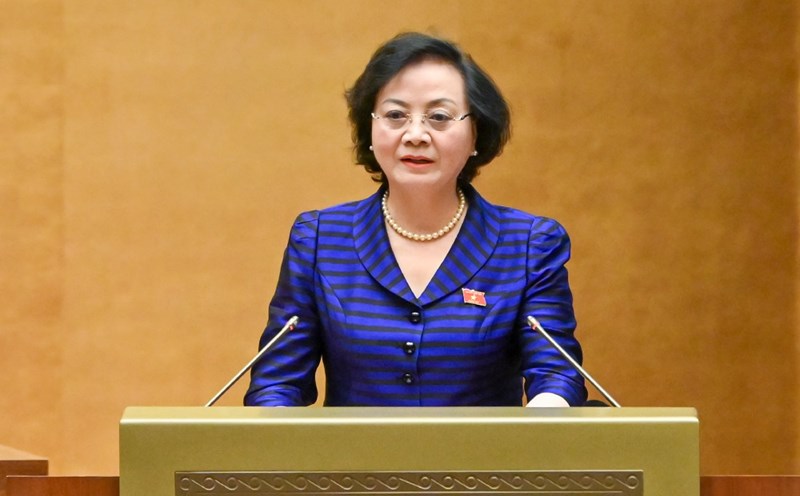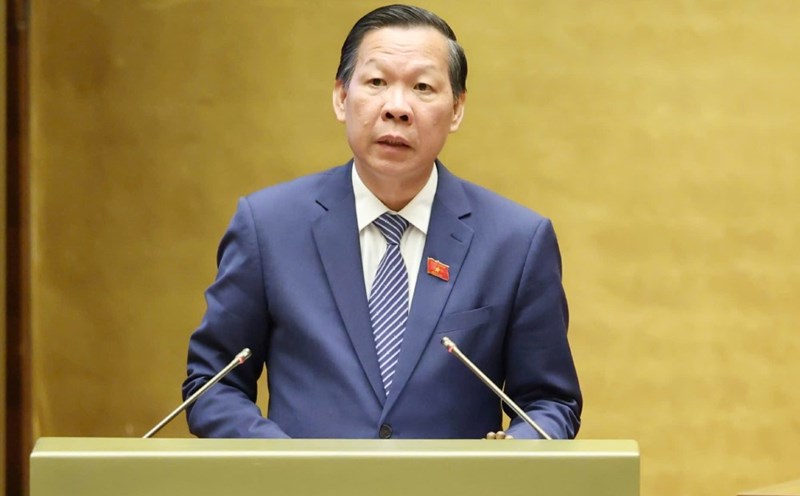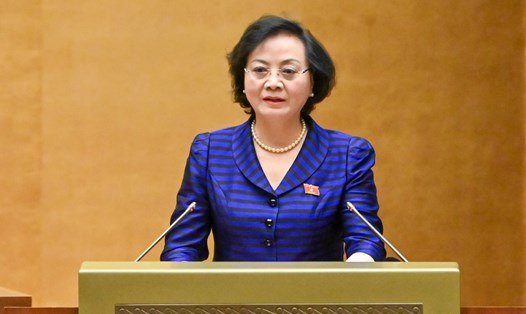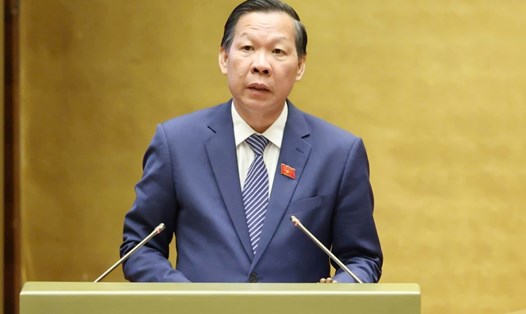Three core principles of reform
According to statistics from the Ministry of Home Affairs, the rate of cadres who are not qualified is 5.38%, the commune-level payroll accounts for over 41% of the total payroll, but the productivity between localities is very different. The same title but the level of contribution, responsibility and income are not commensurate. This salary reform cannot therefore only "increase the basic salary", but must also reform the institution, job position and the results evaluation mechanism.
First, the salary must be enough to live on. Salary must closely follow fluctuations in living expenses, ensuring a minimum living standard for public employees. Otherwise, the " rigid salary" will be just a formal number, while the allowances and non-salary income will be large, causing distortedness, lack of transparency and easily leading to negativity.
Second, salary must be associated with productivity. From the mechanism of "paying for positions" to "paying for positions and results". Each civil servant needs to have a clear output index - the rate of on-duty records, budget savings, people's satisfaction, and process improvement initiatives. The salary bonus can account for 20-30% of total income, both enough to create motivation and ensure fairness.
Third, salary must go hand in hand with responsibility and transparency. There needs to be a mechanism to identify the responsibilities of each position; when violating or failing to complete tasks, there must be regulations to reclaim bonuses. All data on timekeeping, evaluation, and payment rewards must be digitized on the public human resource management (HRM) platform, helping to audit, monitor, and publicize quarterly.
Proposing two clear reform stages
Phase 1 (2026): "enough to live and clean allowances". Adjusting the basic salary to ensure a minimum living standard. Review and streamline the allowance system; only retain truly necessary items such as disadvantaged, toxic areas, and specific industries. Standardize the list of commune-level job positions, complete the border crossing according to workloads. Apply the mechanism of "enough people - right job - right expertise", prioritizing retraining instead of new recruitment.
Phase 2 (2026-2027): " issue productivity and digitalization". Expanding the pay for performance mechanism for units providing direct public services such as one-stop administration, education, and healthcare. Build a "three-axle" salary table: Location - skills - results. Deploy a public HRM system, integrate records, KPI, training, marking and 360-degree assessment. Public the quarterly unit rankings, creating healthy competition and encouraging innovation.
The problem of resource and spending discipline
According to the Ministry of Finance, if each year it saves 1-2% of administrative management expenditure thanks to digital transformation, centralized bidding and infrastructure sharing, it will create significant room for the salary fund without increasing the budget burden.
The focus is on keeping the ratio of salary fund in regular expenditure at a reasonable level, not expanding the payroll. Increasing income must go hand in hand with increasing productivity in each payroll, meaning paying higher salaries to fewer people but working more effectively. It is necessary to end the situation of "salary allowances", all income must be identified, accounted for through digital platforms, trace and audit. At the same time, it is necessary to publicize the "public interest index": How much time to process documents must be converted for each increased salary, how much people's satisfaction must increase, and how much social costs must be reduced.
Increasing the basic salary from January 1, 2026 not only helps to "enough" but more importantly, warms the heart for service. A strong government must start from a team of motivated, capable cadres with a stable life.
Policy recommendations
Issue a resolution on the reform roadmap for 2026-2027, publicizing the cadre life index and public spending productivity. Complete the commune-level job positioning framework, capacity standards and flexible staffing mechanisms. Apply the regional coefficient and annual living expenses basket to ensure a "enough" salary. Establish a quarterly spending result reward fund, including SLA and digital data, allowing a pilot "results contract" with the head of the unit. Integrating the national public HRM system, connecting the population and staff database; all income must "go through digital". Publicly publicize the public service rankings, taking people's feedback as a measure of bonuses - fines. Each year, save at least 1-2% of regular expenditures to supplement the salary fund.
When civil servants are "enough to live" and motivated and are fairly evaluated, the State will be more productive, society will receive better and more transparent services. From 2026, if implemented synchronously and with discipline, Vietnam can turn salary reform into a new lever for national productivity, turning salary level into reform capital.












